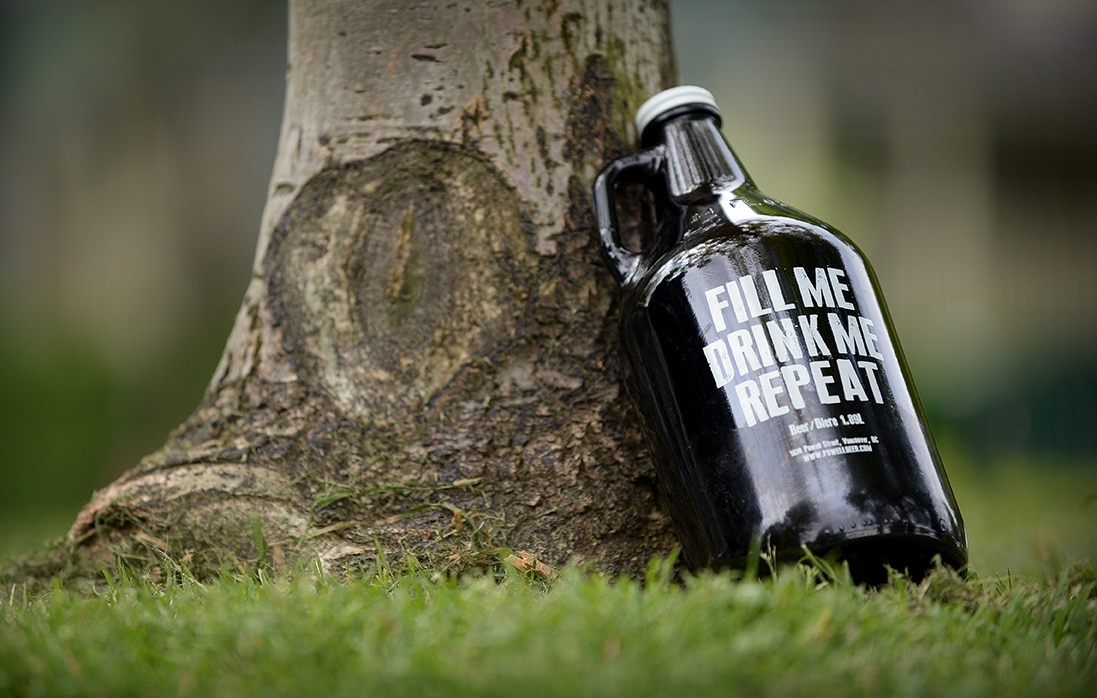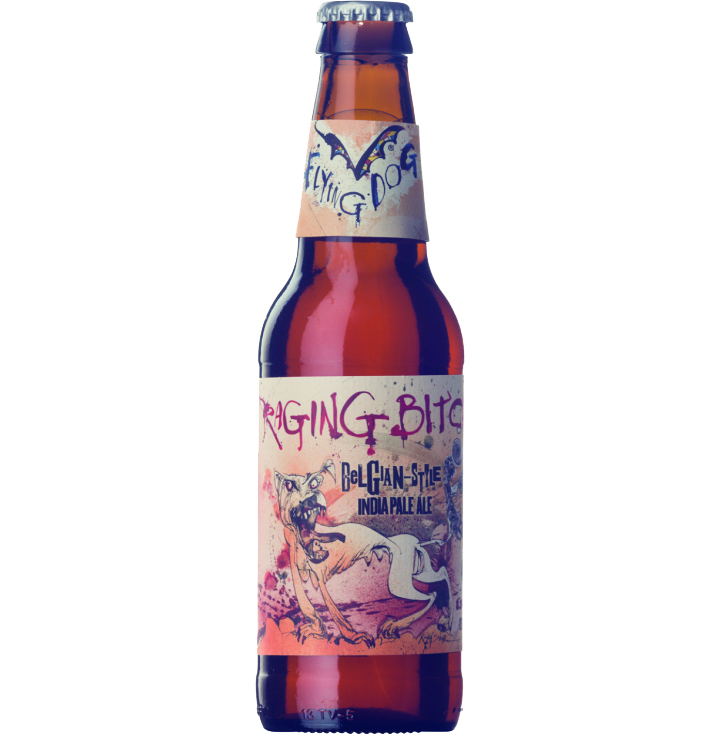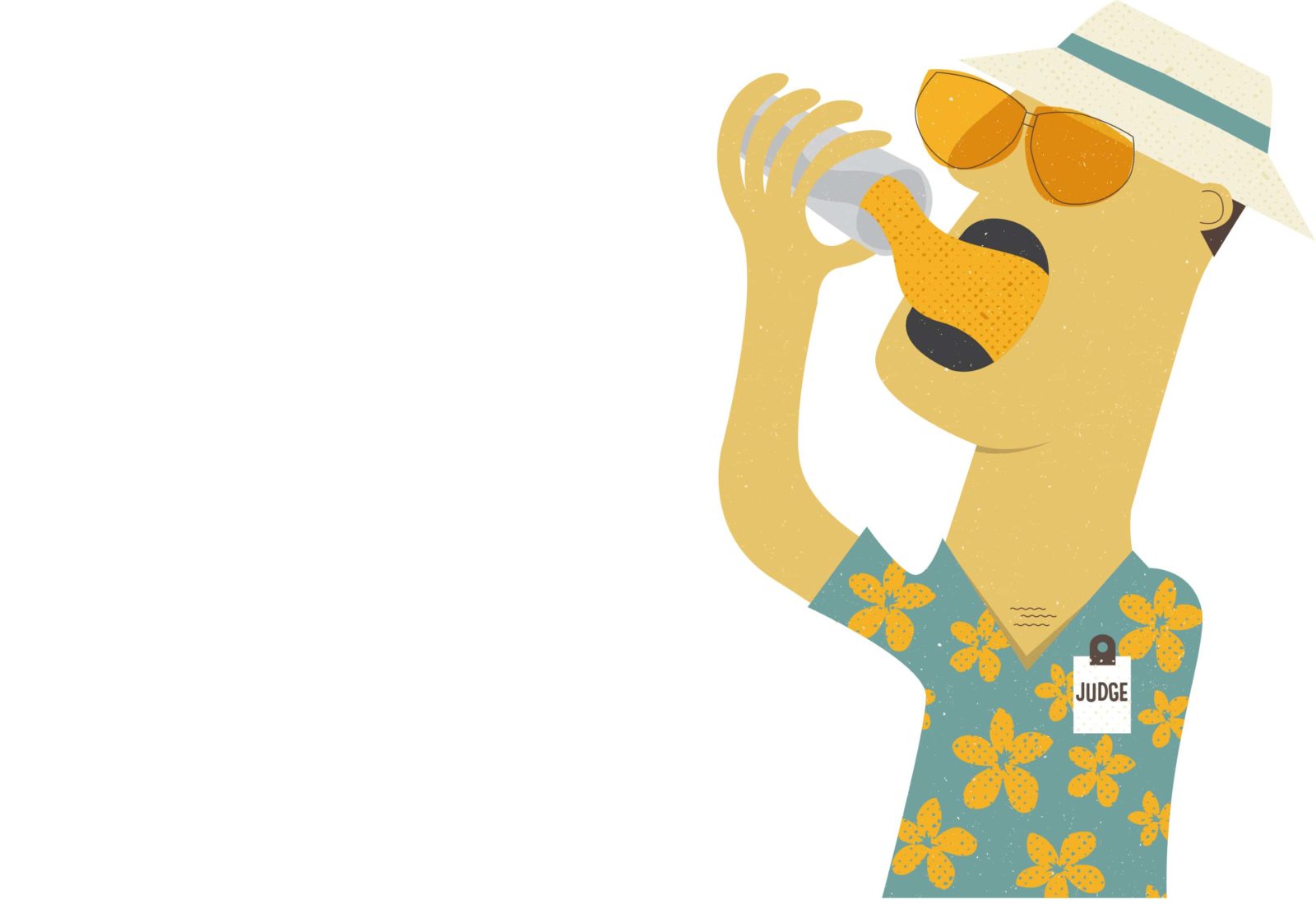
At noon on Friday, Nov. 13, Malone’s Social Lounge and Taphouse Vancouver sent a press release to media outlets, announcing its new off-sales growler filling station. The downtown pub claimed that the station would be the “first of its kind” and the first “in Vancouver to offer beers from more than one brewery” – 38 beers in total, including local and international craft beer.
It was a fine idea, in theory. Craft beer is booming, growlers are trendy and the densely populated downtown core has a dearth of locations to fill them up. Malone’s saw an opportunity to quickly capitalize on the trend.
It was too quick, though. It’s currently illegal for private liquor and off-sales retailers to sell re-packaged alcohol, including refilled growlers. By 4:30pm that same Friday, Malone’s had sent another email announcing that the growler fill station would be put on hold “due to licensing issues.”
No one at Malone’s was available for comment on this story, so I don’t know what happened exactly, but it’s likely that the Liquor Control and Licensing Board (LCLB) got involved.
In BC, only beer manufacturers and brewpubs with a manufacturing license are allowed to refill growlers. Any business found refilling growlers unlawfully can be penalized with a fine or temporary license suspension, according to Kelsie Carwithen, communications manager for the Ministry of Small Business, which looks after the Liquor Distribution Board (LDB).
She wrote in an email that “a small number of establishments have been found selling and refilling growlers unlawfully,” though she wouldn’t give specific cases.
Which means there’s clearly a desire for private liquor stores, grocery stores and pubs to allow growler fill stations. As a result, the policy is currently under review after Parliamentary Secretary for Liquor Policy Reform John Yap recommended in the BC Liquor Policy Review Final Report released in 2014, that the LCLB “allow private and public retail liquor stores to sell growlers (refillable bottles) and operation refilling stations.”
Growler filling stations are popular in Washington and Oregon, and both Alberta and Manitoba allow them as well. But there’s less support for these establishments in BC.
Ken Beattie, executive director of the BC Craft Brewers Guild, was surprised by Yap’s recommendation. The BCCBG had stated they were against such filling stations while taking part in the review, primarily because it would take revenue away from the breweries themselves.
“For a small brewery, [growler filling stations are] kind of the lifeblood when you get started,” Beattie says. “Distribution is expensive. All these things are expensive, and if you don’t have the capital get into every part of the market you’d like to get in, you can fund the rest of the investment… through your tasting lounge or through your growler station.”
Not everyone agrees. At the time of liquor policy review, Adam Chatburn, then-president of CAMRA’s Vancouver chapter, wrote on CAMRA’s website, “It’s silly to assume that it’s going to take away business. The concept of growler fills at liquor stores seems like a good one because many people who can justify going to the brewery itself are usually extremely local.
“I live in Surrey, and if you want a growler fill here that isn’t Red Racer you’re looking at going to Delta, or New West. I don’t even own a growler because it’s so impractical to fill.”
Convenience is certainly a benefit, but price and quality would not be. For other retailers to turn a profit on a growler fill, it would likely need to be marked up to degree that would make it more expensive than a six-pack – which is arguably more convenient, and offers fresher beer.
“I also don’t see how it’ll be profitable for anybody to do it. It’s profitable for people to do it because it’s our beer. For other people to do this, the growlers would need to be priced pretty high,” say Ben Coli, owner and head brewer of Dageraad Brewing.
“And it’ll be less fresh. It’ll be newer beer, but it’ll be oxidized if they’re not filling it properly, and I’m pretty confident that they won’t be filling it properly. Are these stores going to invest the kind of money it takes to get proper growler fillers?”
Brewers and brewery owners are notoriously fickle about quality and freshness – and rightfully so. These are the major advantages craft brewers have over macro brands in the marketplace. Growlers are not optimal for packaging beer either, and if they’re not filled properly, the beer can be very easily compromised. Coli says the air in the growler must be pushed out with CO2 to avoid staling the beer with air. Then it needs to be capped on foam to make sure there’s no air in the growler when it’s taken home.
“It’s not like it’s rocket science to fill it,” Coli says. “I just have no confidence that [retailers] are going to take the time and put the care in to training everybody that’s going to fill it.
“A tasting room isn’t a gas station. It’s full of people who care about beer and love beer. My tasting room is anyway. Most are.”
The folks at Malone’s were unavailable for comment, so it’s unknown what their plans are for training and ensuring quality. And according to Beattie, they, and retailers supporting growler filling stations independent of breweries, are missing the whole point of why growlers are popular to begin with.
“The popularity has to do not with the growler or the container,” Beattie says. “The popularity has to do with going to the brewery and experiencing these completely unique products, which won’t be happening at the retail store.”





